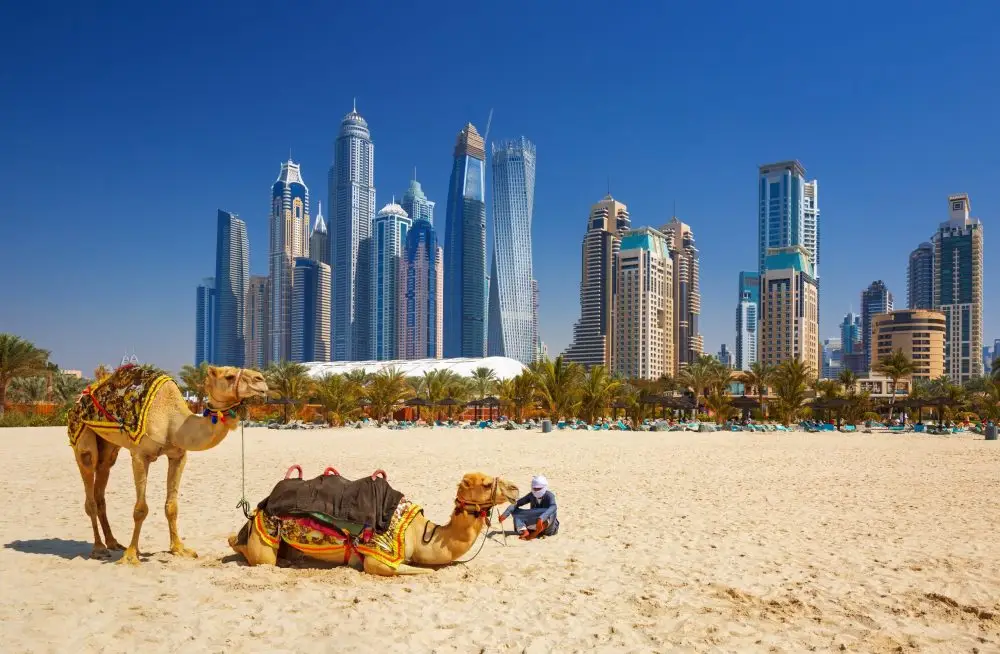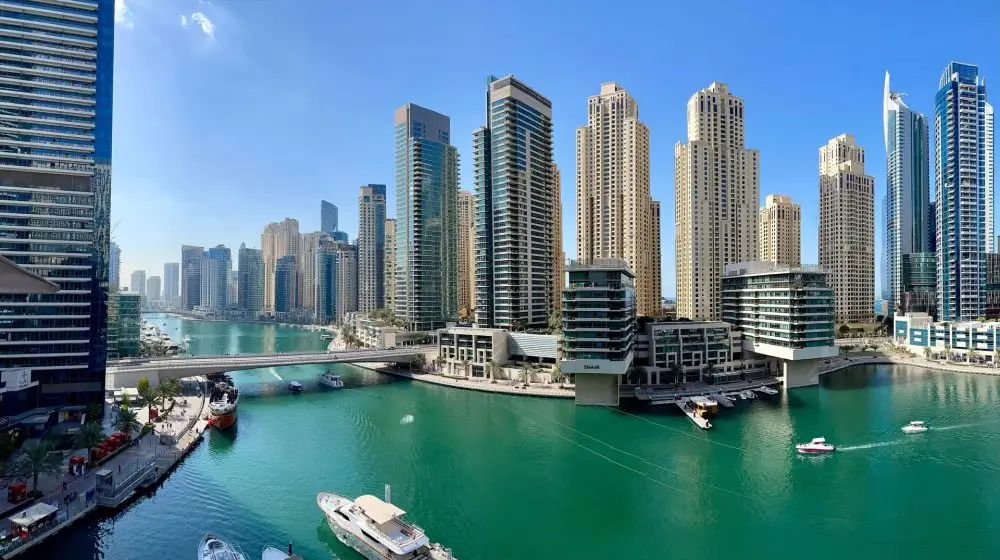The real estate market in the UAE continues to demonstrate stable growth: according to CBRE, in 2024, the average cost of residential properties increased by 20.1% compared to the previous year. The main activity is driven by immigrants, investors, and tourists. The emirate offers a wide range of formats, and the types of real estate in Dubai allow for achieving strategically different goals — from quick resale to passive long-term income.
Brief guide for investors
The types of real estate in Dubai are diverse and cover all major investment goals — from stable income to capital growth. The market offers apartments, villas, townhouses, commercial, industrial-warehouse, and premium properties.

This variety allows investors to choose an option that fits their budget, timelines, and level of profitability. A successful strategy starts with understanding these differences — it is the foundation of a successful investment.
Apartments, Villas, and Townhouses
Residential real estate maintains its leadership in terms of transaction volume. Apartments account for up to 70% of all sales, with an average short-term rental yield reaching 7.8% annually. Formats range from studios in Jumeirah Village Circle to penthouses in Palm Jumeirah.
Townhouses in areas like Arabian Ranches or DAMAC Hills cater to stable demand among families. Villas in Dubai Hills Estate consistently rank in the top 5 in terms of inquiries. Here, the cost per square meter starts from $3,000.
Residential properties include:
- apartments — a flexible format with quick returns;
- villas — premium class for affluent tenants;
- townhouses — optimal balance of space and cost.
These options can easily be adapted for rental or ownership, which is particularly important for long-term property investments in Dubai.
Offices, Retail Spaces, Warehouses
Commercial real estate shows steady growth. In Downtown Dubai and Business Bay, demand for office spaces increased by 23% compared to the previous year. The average rental rate starts from $380 per m² per year.
Dubai areas for purchasing commercial properties:
- Business Bay — for offices and coworking spaces.
- Al Quoz — warehouses and logistics.
- Jumeirah Lake Towers — retail spaces for dining establishments.
Business properties in the UAE are geared towards a growing business audience due to the influx of startups and international companies. Buying property in Dubai for commercial purposes requires a clear strategy that takes into account not only profitability but also the level of local demand.
High Margin Properties
Industrial real estate in Dubai offers long-term stability. Key locations include Dubai Investment Park and Jebel Ali. Warehouses, manufacturing complexes, and logistics hubs. Average yield can reach up to 10% annually.
Types of residential properties include a limited number of such assets, which increases interest from institutional investors. These properties are purchased to be rented out to export-oriented companies. Owning such assets is an advantage when starting a business in the UAE.
Premium Class Locations
Elite real estate is concentrated in areas like Palm Jumeirah, Dubai Marina, and Emirates Hills. Villas with pools, panoramic windows, finishes from Armani and Versace. Prices start from $1.5 million per property. Primary buyers are investors from Europe and Asia.
Types of real estate in Dubai include residential complexes with hotel management, where yields can reach 6% even with a high entry threshold. Such properties are chosen not for quick returns but for capital investment with the prospect of liquidity growth.
Formats for the Tourist Audience
Seaside properties are among the most liquid formats. Apartments in Bluewaters, studios in Dubai Creek Harbour, or villas in La Mer consistently attract tourists. Rental rates range from $100 to $700 per day depending on the season.
Foreign investors actively utilize waterfront properties for short-term rentals through platforms like Airbnb. Yields can reach 8% when managed by a local operator. Special attention is given to areas with developed tourist infrastructure.
Key Parameters for Choosing a Format
Each type corresponds to a clear set of investment objectives. A rational choice of format requires a comparison of goals, budget, and expected profitability.
When choosing, it is important to consider:
- Investment goal. For quick rental income — apartments. For capital growth — luxury residential properties. For a stable income stream — commercial properties.
- Budget. Entry into a studio starts from $120,000. A villa in a good area starts from $1,000,000. Commercial property starts from $300,000.
- Location. Dubai Marina, Downtown, JVC — for rentals. Business Bay — for business. Jebel Ali — for industrial needs.
- Yield. Apartments — up to 8%. Commercial — 6–10%. Industrial — above 9% for long-term leases.
- Legal status. Ownership — in freehold zones. Leasehold for 99 years, especially important for immigrants.
- Current market. The UAE real estate market remains flexible, with the opportunity to exit a deal profitably with a sound strategy.
A comprehensive approach eliminates risks and simplifies decision-making. A clear understanding of the parameters allows for building a sustainable investment model.
Ownership or Rental
Most properties in Dubai are sold in freehold format, providing full ownership with the right to sell, gift, and inherit. Immigrants often choose this format to obtain residency. Leasehold is less common — for example, in some parts of Deira.
Business rentals require registering a company in the appropriate jurisdiction. For investors, ownership provides a strategic advantage in long-term planning.
New Developments and Secondary Market: Differences
The primary market offers a wide selection of layouts, modern construction technologies, and flexible payment schemes. New developments in areas like Dubai Creek Harbour, Arjan, and Sobha Hartland are gaining popularity among investors.
Secondary properties allow for quick rental income and a realistic assessment of the property. Such offers are more common in areas like Jumeirah Lakes Towers and The Greens. Dubai’s real estate offerings cover both segments, but the choice depends on the strategy — whether aiming for price appreciation or immediate rental income.

Types of Real Estate in Dubai: Conclusions
When choosing a property, factors like budget, goals, profitability, location, and ownership status are crucial. Different types of real estate in Dubai allow for implementing strategies — from quick profits to long-term growth. A smart approach starts with analyzing these factors.
 en
en  ru
ru  de
de  ar
ar  es
es  hi
hi  fr
fr  nl
nl  it
it  pt
pt  el
el 



